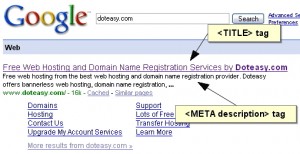No one enjoys working with a leader who comes across as fake or insincere. Whether they have a reputation for not following through on commitments, withholding information, or not being sensitive to others’ needs, these leaders will find it challenging to win the trust of employees or build strong relationships within their teams.
What is Authentic Leadership?
Authentic leaders are distinguished by their honesty, a reputation for dealing with employees in a straightforward and genuine way. They don’t make promises they can’t keep, ignore obvious problems, or pretend to be someone they’re not. Employees don’t expect leaders to be perfect, of course, but they want them to be genuine people they can have a relationship with. They want to be able to trust their leaders to do the right thing and treat people fairly. When a leader comes across as inauthentic, they will find it more difficult to build trust and influence others.
Authentic Leader Characteristics
Self-Awareness
In order to be authentic, a leader must first have a good understanding of who they are. Self-awareness refers to a person’s ability to accurately assess their own attitudes, behaviors, and motivations while also recognizing how they affect others. When a leader lacks self-awareness, they create a bubble around themselves that prevents them from seeing what is actually happening. These leaders struggle to take accountability for mistakes or problems because they fail to recognize that they played a role in the situation. An authentic leader, however, is keenly aware of their responsibilities and how they are perceived by others, which makes them more likely to be seen as genuine in their interactions with others.
Emotional Intelligence
High emotional intelligence is crucial when it comes to building and sustaining relationships. This makes it an incredibly important quality for leaders to possess. Emotional intelligence can be broadly defined as a person’s ability to manage their own emotions while also being able to recognize how other people are feeling and empathize with them. Research has shown a clear link between these qualities and job performance, with 90 percent of top-performers ranking high on emotional intelligence (EQ) assessments. An authentic leader will find it easier to build trust and strong relationships in their teams because they understand how to connect to people in ways that make them feel valued. They know that perception is often reality, and they work hard to move beyond negative emotions, reflect on difficult situations before taking action, and make sure they’re providing their teams with the support they need to be successful.
Active Listening Skills
Listening to the thoughts, suggestions, and concerns of employees is one of the most important things a leader can do to boost engagement and build support. When they brush an employee’s comments aside with replies like “You’ll get over it” or “Just work harder,” the employee not only feel unsupported, but also unheard. Shockingly, less than a quarter of employees say their manager responds constructively when they share their problems. Leaders who make a habit of not listening to what their teams have to say quickly find themselves struggling with low engagement and high turnover. By developing their active listening skills to engage in productive, two-way conversations with employees, authentic leaders can build a trusting environment where people feel comfortable asking questions, providing feedback, and taking chances.
Credibility
Authentic leaders don’t hide behind false promises or vague accomplishments. They have a track record of success that demonstrates their expertise and have a reputation for honesty. This credibility allows them to earn the respect of their teams and makes it possible to build support for their initiatives and suggestions. An authentic leader doesn’t feel the need to selectively withhold information or distort facts in order to make themselves look better because they’ve already established a track record of success. This allows them to be more tolerant of risk and resilient in the face of setbacks.
Integrity
Employees want to know they can trust a leader to be honest, consistent, and fair. They want expectations to be clear and have the confidence that when a leader promises to do something, they will follow through. Authentic leaders have a high level of integrity, which helps them to promote accountability in their teams. When people trust a leader to be open-minded and transparent , they are more likely to engage in honest communication and participate in efforts to resolve conflicts productively.
An authentic leadership style helps leaders use their emotional agility to build better relationships within their teams. They excel at establishing trust and promoting accountability as well as improving communication, all of which allow team members to collaborate more effectively and take the risks necessary to drive innovation. By designing their assessment and development programs to emphasize these qualities, organizations can build more authentic leaders who are able to overcome the interpersonal and engagement challenges that so often derail teams.
Business & Finance Articles on Business 2 Community
(68)
Report Post





